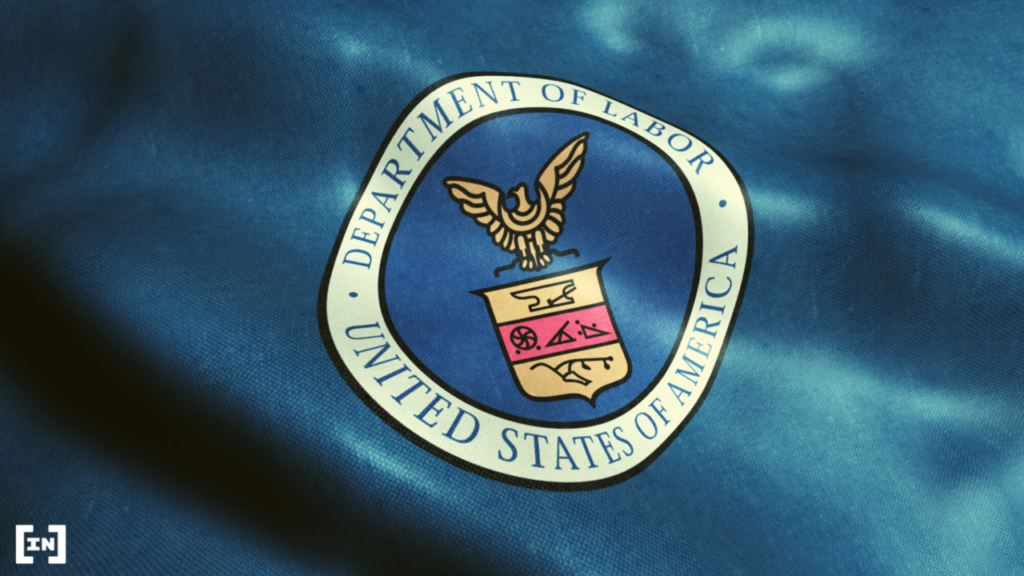U.S. Department of Labor Faces Scrutiny on Bitcoin 401(k) Plans

The U.S. Department of Labor is receiving pushback from an industry initiative, requesting it rescind its previous guidance on including crypto in 401(k) plans.
The Crypto Council for Innovation (CCI) comes with support from Coinbase and Block, and is asking the U.S. Labor Department to walk back guidance it previously issued in March, warning consumers about the dangers of allocating crypto to 401(k) plans. Specifically, the Department is facing scrutiny for having too narrow of a focus on crypto’s risks, while neglecting its benefits.
Battling for 401(k) freedom
The U.S. Labor Department initially expressed concern about including crypto in 401(k) plans in March.
Ali Khawar, the acting assistant secretary of the U.S. Labor Department, told the Wall Street Journal at the time that the Department “has serious concerns about plans’ decisions to expose participants to direct investments in cryptocurrencies or related products, such as NFTs, coins, and crypto assets.”
The first retirement provider to draw blood was Fidelity Investments in April, who has already provided retirement plans to 23,000 companies. It also announced that it was creating “digital assets” accounts in its 401(k) plans.
Fidelity’s announcement immediately drew backlash from the Labor Department, which expressed “grave concerns” with what Fidelity had done, and advised firms offering 401(k) plans to expect investigations on how they would “square their actions with their duties of prudence and loyalty.”
Enter the CCI, an industry group with the backing of the largest crypto exchange in the U.S., Coinbase, and Jack Dorsey’s payments company, Block, formerly known as Square.
The industry group has clearly indicated that it wants the Department of Labor to rescind the guidance it issued in March and grant retirement plan managers protection against claims of breach of duty.
“[The Department of Labor] narrowly considers only the risks of cryptocurrencies while disregarding their potential benefits, including growth and portfolio diversification. As with any other type of investment option, plan fiduciaries must consider both the risks and the potential benefits of cryptocurrencies,” said Sheila Warren, CEO of the CCI to Barron’s.
The CCI also claims that the Labor Department’s comments are inconsistent with President Joe Biden’s Executive Order, also issued in March, that tasks different departments to study crypto and present their findings.
Republicans are also chipping in. In May, Senator Tommy Tuberville (R-Ala) introduced “The Financial Freedom Act,” a bill aiming to limit the powers of the Labor Department in dictating which investments retirees can take part in.
DOL has two crucial allies in its fight
However, the Department has secured two allies – Senator Elizabeth Warren (D-Mass) and Senator Tina Smith (D-Minn.), a known crypto critic. The two senators penned a letter to Fidelity, enquiring why the company ignored the Labor Department’s guidance in March and how the company will mitigate risks associated with bitcoin.
In response, Fidelity pledged to continue a dialogue with lawmakers like it does for all of its new products. Fidelity plans to roll out the digital asset allocation in 2023, allowing investors to allocate up to 20% of their portfolio into an account for digital assets.
What do you think about this subject? Write to us and tell us!
Disclaimer
All the information contained on our website is published in good faith and for general information purposes only. Any action the reader takes upon the information found on our website is strictly at their own risk.













